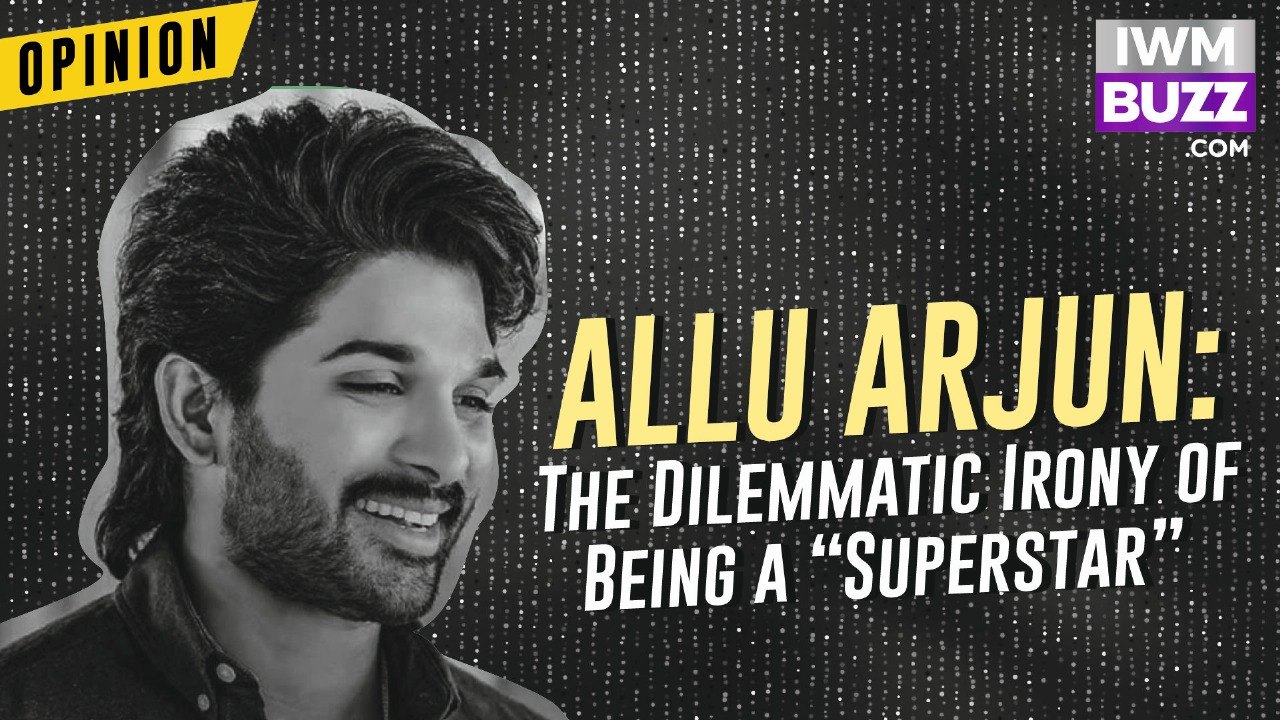What lies beyond that gleaming façade? – A strange paradox. A life where every triumph is magnified, but so too is every flaw, every mistake. For all the applause, the superstar often finds themselves longing for something as simple as a moment of solitude, a fleeting glimpse of normality. The dilemma? The more the world elevates them, the more they risk losing themselves in the process.
When you put that microscope on the stardom shoes; the nails will haunt you. Moments will be there, where you will find the nails to be incoherent for the rider to carry, but still, they do- why? Because when you get fame at your fingertips, you get chained down the most, even for someone else’s sins.
This haunting paradox becomes glaringly evident in the aftermath of the tragic incident at the premiere of Pushpa 2: The Rule in Hyderabad—an event that involved the arrest of one of Telugu cinema’s biggest stars, Allu Arjun.
The events surrounding the premiere of Pushpa 2: The Rule in Hyderabad on December 4, 2024, have forced us to question the responsibilities that accompany celebrity status, and whether Allu Arjun is unfairly bearing the brunt of an unfortunate tragedy. While the actor found himself arrested in the aftermath of a stampede that led to the tragic death of Revathi, a 35-year-old woman and the critical injury of her child, the situation—raises a more pressing question: Should a man be held accountable for the failings of others, especially when those others hold the reins of control?
What is the price of celebrity?
In this case, it seems that the price is not only the loss of privacy and freedom but an unjust sharing of blame. Allu Arjun, who was reportedly not given official permission to attend the event by the police, found himself at the center of a tragedy that was far from his doing. The tragic loss of life, while heart-wrenching, cannot be laid at the feet of the actor. It was the reckless management of the venue, the complete absence of crowd control, and the inability of the police to foresee such chaos that were the true culprits. Yet, the focus shifted squarely onto Allu Arjun.
One cannot help but wonder: is it fair to drag Allu Arjun into a situation where his only crime was being a victim of his own popularity?
The circumstances surrounding the incident point not to the actor’s negligence, but to the utter irresponsibility of the theatre organisers who failed to control the crowd, despite the obvious risk of chaos. And even more crucially, the Chikkadpally Police had reportedly denied permission for Allu Arjun’s visit, citing concerns over the lack of a proper exit.
If the police had anticipated the potential danger of such a massive crowd gathering for the film’s premiere, then why was the theatre even allowed to operate in such an unsafe manner? Where is the accountability for the organisers, who allowed fans to flood the premises without any crowd control measures in place?
The arrest, the media frenzy, and the ensuing public outrage all point to a society that is eager to point fingers but slow to confront its own failings. Allu Arjun’s only ‘crime’ was his popularity. His name drew crowds, and the crowds spiralled into chaos. But was he truly responsible for the mismanagement that led to this tragedy? Of course not. He was simply the unfortunate centerpiece of a dangerous spectacle that should never have taken place in the first place.
What’s even more telling is the response of the actor. Deeply shaken by the loss of life, Allu Arjun extended his condolences to the victim’s family, offering financial aid and covering the medical expenses for the injured child.
It is important, however, to recognize the deep sorrow and empathy that this incident has stirred within us all. Our hearts go out to the victim’s family—the loss of a loved one is a pain no one should ever have to endure. And yet, it is the tragic failure of the theatre’s management and the apparent lack of foresight on the part of the authorities that remains the real issue at hand. The incident was the result of a series of preventable oversights, but it is Allu Arjun who is left to pick up the pieces, dragged into a narrative that is entirely not of his making.
But the lesson learnt here is, ‘accountability.’
Accountability, especially for public figures, is often a difficult and uncomfortable conversation. In the case of Allu Arjun, while he was not directly responsible for the tragic stampede, the expectation remains that someone in his position should be aware of the weight their presence carries.
True accountability isn’t just about bearing the consequences when things go wrong; it’s about recognizing where improvements can be made, stepping up in moments of crisis, and showing a willingness to take responsibility, even in ways that are not required by law. Allu Arjun’s decision to support the victim’s family and cover the medical expenses reflects a kind of accountability that goes beyond mere legalities—it’s about doing the right thing when it matters most.

